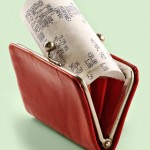‘Purchase’ is a word that is often mispronounced, basically because people like to pronounce it exactly as it’s written. They look at the word, break it into its syllables, PUR and CHASE, and then read them out loud. The word ends up sounding like ‘purr’ (the sound a cat makes), and ‘chase’, as in, “My 2-year-old likes to chase cats” (they aren’t usually purring when she does that).
If you’re in a hurry, here’s the 60-second Quick Fix:
What people forget when they say ‘purchase’ is the very important tendency for vowel sounds in unstressed syllables to ‘reduce’ (change their sound) to a schwa. Remember that the schwa sound is a bit like ‘uh’. In this case, the first syllable, PUR, is stressed and the second syllable, CHASE, is unstressed.
To reduce the ‘a’ in the second syllable, CHASE, pretend that the ‘a’ has been completely removed. Shove the ‘ch’ and the ‘se’ together and try to say them without a vowel in between. Now ‘chase’ should sound a bit more like ‘chus’.
PURR-chus
Note that this word is pronounced the same way whether it is a noun or a verb, so it is an exception to the word stress pattern for 2-syllable nouns and verbs covered in Part 7 of the Free Pronunciation Short Course.
Also remember that ‘purchase’ is a somewhat formal word for ‘buy’. It’s much more common to say, “I need to go to the store to buy some milk,” or, “We need to buy more toner for the printer,” than to use ‘purchase’ in these instances. Don’t be afraid to use ‘buy’ instead of ‘purchase’ if you’re still having trouble with this word.


 American Accent – What Does the Future Hold?
American Accent – What Does the Future Hold?
Quite true, most of us pronounce words as we learned how to spell them. Consider the word “pronounce.” Most of us pronounce it as “pro” & “nown-s” when it should be “pro” & “nun-s,” 2nd syllable de-stressed! For that reason, we need to see what context it is used in, else it can get confused with “pronouns.”
Pronouncing words the way they are spelt would be okay if we were speaking dutch or german where pronunciation is very definite, but we ran into problems in 1066 in the battle of hastings when the french conquered briton & french started creeping into the english language. Many links here on the history of english.
http://www.danshort.com/ie/timeline.htm
We would not pronounce christopher the way we spell it would we? yet christoph is a pretty common name in germany.
As for using simpler words like buy instead of purchase, a good book would be Complete plain Words by Sir Ernest Gowers; recommended by probably all english teachers including my mum, available online here;
http://www.ourcivilisation.com/smartboard/shop/gowerse/complete/index.htm
Thanks for your comments, Alvin, and the great links!
You’re very right about the link between pronunciation and spelling!
Interesting point with ‘Christopher’. It’s a tough one because it has some of English’s odd phonics – ‘ch’=’k’ and ‘ph’=’f’, so I guess you’d have to know that system before you could pronounce it correctly. The ‘o’ gets lost in the middle because it’s unstressed, so it reduces to a schwa. You’re right though, in German (as well as other Germanic languages, like the Scandinavian languages) the pronunciation gets closer to the spelling because there is more stress on the ‘o’.
Regarding ‘pronouns’ versus ‘pronounce’… here’s my take:
pronouns = PRO-nownz (stress on first syllable, ‘s’ at the end should be a voiced ‘z’ sound)
pronounce= pruh-NOWNS (stress on second syllable, ‘s’ at the end is an unvoiced ‘s’ sound, the ‘o’ in the first syllable is reduced).